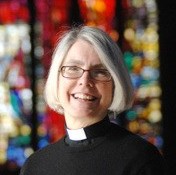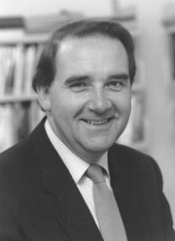Handing on the faith

Religious Education has been much in the news in the last year. The Schools Minister, Nick Gibb MP, was strenuously lobbied in the hope that he might reverse his decision to exclude RE from the ‘E-Bac’ (the English Baccalaureate — a collection of core GCSE subjects favoured by the Government), but to no avail. Yet in England and Wales it remains a statutory subject which must be studied by all registered pupils until the age of 18. However, the quality of RE in schools varies considerably, as does its content, and it is true to say that most RE teachers are fearful that its exclusion from the E-Bac will see a decline in the number of pupils entered for public examinations in the subject. The situation is more hopeful in Catholic schools where RE is regarded as the core of the whole curriculum and must be allotted 10% of the time available for teaching.
Let the riches shine

What is ‘Religious Education’? In some schools, RE is little more than Sociology of Religion, while in others it follows a Comparative Religion model, helping make true Ronald Knox’s observation that, ‘the study of comparative religions is the best way to become comparatively religious.’ If, as seems likely, Religious Studies GCSE declines as a result of the English Baccalaureate, then we are likely to see many RE lessons become a sort of curricular appendix into which all the non-exam subjects like Citizenship and Sex and Relationships Education may be quietly banished.
Opportunities for Christian education
 How are Church of England schools faring in the current educational climate? How can we ensure that they can continue to flourish as the system changes around them?
How are Church of England schools faring in the current educational climate? How can we ensure that they can continue to flourish as the system changes around them?
Are you a Future Leader of a Catholic School?
How many of the following can you answer ‘yes’ to?
Catholic schools: A force for good in their local community

What is it that makes a Catholic education unique and a force for good? As a practising Catholic who has spent a career working in education right across the country this is a question that I am frequently asked by education professionals and by parents looking for that special something that they see a Catholic education gives. Having thought about this many times I now have some answers to give.
The work of the RE Council
Religious Education is at the heart of the nature and purpose of the education of young people. It is at the core of the Catholic school. As the 2012 Curriculum Directory for Catholic Schools says of Religious Education:
“Religious Education has a central role in the curriculum of the Catholic school and is at the heart of the philosophy of Catholic education. Religious Education has developed in a way that reflects the particular identity of our Catholic schools in England and Wales.”
Decision time for Catholic Academies
 The Secretary of State for Education, Michael Gove, is keen that all schools an England should become Academies as soon as possible. Academy status, he argues, will give schools more freedom and autonomy to make their own educational decisions in pursuit of higher standards and provide more funding to achieve those standards. For some existing schools ‘in difficulty’ it will provide ‘new start’ opportunities.
The Secretary of State for Education, Michael Gove, is keen that all schools an England should become Academies as soon as possible. Academy status, he argues, will give schools more freedom and autonomy to make their own educational decisions in pursuit of higher standards and provide more funding to achieve those standards. For some existing schools ‘in difficulty’ it will provide ‘new start’ opportunities.
How is Religious Education changing?
A fourteen year old pupil once said to me, ‘You know, RE is a great subject, but you should really change its name.’ I asked why, and he said ‘Because it contains the two words that young people hate the most.’
Learning to love their neighbours
The most important thing we can teach our children is to love your neighbour as yourself. For young children it can be difficult to answer the question ‘who is my neighbour?’ For many of them it can just mean those who live close to them.
Holy Cross Catholic School, Plymouth has had a link with St John Vianney School in Gambia for over three years. The link was celebrated during the Holy Father’s visit to the UK in 2010 at The Big Assembly, Twickenham.
Catholic schools: Engaging with wider society

Catholic education could be seen as increasingly beleaguered. In the last few weeks, The Guardian has claimed that Catholic schools favour wealthier families with children on free school meals under-represented. And recently, there has been controversy about the letter from the Archbishops to schools on marriage.
We are rightly proud of our Catholic schools. There is a pluralistic approach to education with the churches, Jewish and Muslim authorities providing education which is regulated in largely the same way as state schools but with a religious dimension in those schools. The state pays the salaries and running costs and 90% of buildings (100% for academies).

